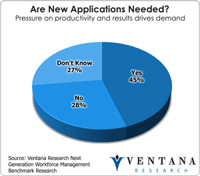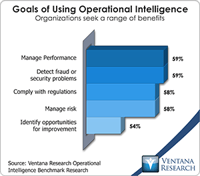A company’s enterprise resource planning (ERP) system is one of the pillars of its record-keeping and process management architecture and is central to many of its critical functions. It is the heart of its accounting and financial record-keeping processes. In manufacturing and distribution, ERP manages inventory and some elements of logistics. Companies also may use it to handle core human resources record-keeping and to store product and customer master data. Often, companies bolt other...
Read More
Topics:
ERP,
Office of Finance,
Operational Performance Management (OPM),
Analytics,
CIO,
Business Performance Management (BPM),
CFO,
Customer Performance Management (CPM),
Data,
Financial Performance Management (FPM),
HR,
Sales Performance Management (SPM),
Supply Chain Performance Management (SCPM),
Workforce Performance Management (WPM)
SYSPRO is a 35-year-old ERP vendor that focuses on products for midsize companies, particularly those in manufacturing and distribution. In manufacturing, SYSPRO supports make, configure and assemble, engineer to order, make to stock and job shop environments. The company attempts to differentiate itself through vertical specialization and its years of ongoing development, which can reduce the need for customization and cut the cost of initial and ongoing configuration to suit the needs of...
Read More
Topics:
Performance Management,
ERP,
Human Capital Management,
Office of Finance,
Operational Performance Management (OPM),
Reporting,
cloud ERP,
container,
Analytics,
Business Analytics,
Cloud Computing,
Collaboration,
Dashboards,
Business Performance Management (BPM),
Financial Performance Management (FPM),
Supply Chain,
Supply Chain Performance Management (SCPM),
SCM,
S&OP,
Digital Technology












